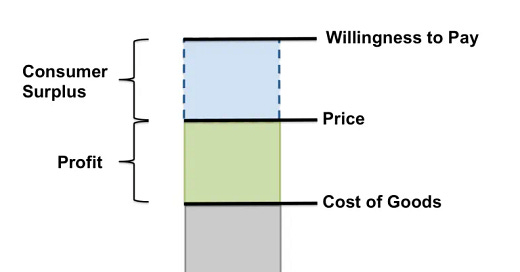Venu Gets a Penalty Flag, Disney and Direct TV Spar, and Google Faces Off Against The Government (Again)
The Most Important Story of the Week for 13-Sep-2024
(Welcome to the “Most Important Story of the Week”, my bi-weekly strategy column analyzing the most important (but often not buzziest) news story of the last two weeks. I’m the Entertainment Strategy Guy, a former streaming executive who now analyzes business strategy in the entertainment industry. Please subscribe.)
It’s been a minute since I’ve published a proper “Most Important Story of the (Every Two) Week(s)” column. I hit what I thought were big strategic topics (the NBA’s media rights deal and antitrust) in August, but I didn’t write a big round-up of news stories.
It was good timing, though, since August was kinda quiet for news, wasn’t it? I re-scanned a lot of newsletters for headlines; the second half of August into September was light on juicy news. There were some stories (for instance, sports streamer Venu got blocked by a judge and Disney/DirecTV are feuding), but not huge, earth-shattering events.
And in fact, I keep finding myself drawn to the stories that often aren’t the biggest news stories, the sorts of stories most readers either scroll past or skip. Thus I’m torn: writing about those stories doesn’t make too much business sense, since the desire of the audience clearly matters! On the other hand, sometimes you can build a niche looking at stories others missed.
So let’s do both. To catch up on a lot of news, we’ll look at the big stories of the last few weeks, including Venu getting halted, the Paramount sale, the NBA and WBD going to court, Google’s antitrust trial, and pair them with a related story you may have missed. Sound good?
Great, let’s dive right in.
Most Important Story of the Week - Sports Streamer Venu Goes to the Penalty Box
The best way to understand Venu—Disney, Warner Bros. Discovery (WBD), and Fox’s sports streamer that is now in legal limbo —is value creation. Remember, this chart:
If you ask customers, they want one thing pretty clearly: all their sports in one place. Their “willingness to pay” for that is obviously high. If you think that many cable subscribers fall into the “avid sports fan bucket”, you can see how high that is.
The streaming alternative just hammers this home for sports fans. Every Thursday, the Prime Video-streamed Thursday Night Football irritates plenty of football fans. If the game ends up sucking, they have to log in to different streamers—or back to cable—to skip around between sports…and that sucks. The old cable bundle was great on a Saturday or Sunday morning, because you could easily skip between games. If a Thursday Night Football game sucks, you can’t just easily leave the app (on most TVs/operating systems) to check out something else, then switch back. It’s a hassle…and hassles mean lower willingness to pay.
Indeed, you could expand this to all TV content. For all their gripes about the price of the cable bundle, customers didn’t realize how great it was to have all their shows in one place. Indeed, the DVR made this on-demand, with live channels if you want them.
So customers place a lot of value on ease of use.
The problem? That ease of use almost always comes with market dominance.
The old cable bundle had a series of local monopolies (cable companies, and some satellite providers) that controlled the whole bundle. The new bundlers (Roku, Amazon, Apple, Google and maybe LG & Samsung) want to play the same role. (And charge all streamers a 30% cut just to participate.) Venu tried to coordinate among the major sports players (together ESPN and Fox control most valuable college sports, and lots of NFL; if they bring in Paramount they’d be unstoppable). The problem is that much power concentrated in one entity will inevitably lead to value capture by the bundle, not value creation for the customers.
Ultimately, I side with the judge who blocked the Venu merger. More competition is better for society and the entertainment industry. (Reminder: a lot of people in Hollywood disagree with me on this!) But I at least see the upside for customers in “one stop” viewing.
The key question—and I need to think more on this—is how to offer, preserve, and maintain that value (easily switching between games, shows, channels, and streamers) while also preserving competition.
The Story You May Have Missed - Lots of Sports Leagues Want Bundles
By the way, I can’t help but notice that a lot of sports apps have mimicked the Venu model. All the New York teams are working together on an app called Gotham Sports, where all their sports stream together. There’s also an app called Victory+ that may do the same thing for local sports NBA and NHL teams. Amazon keeps eyeing local rights too. Google bought Sunday Ticket for this very reason.
As Yoda would say, “Desire to bundle in sports, strong it is.”



